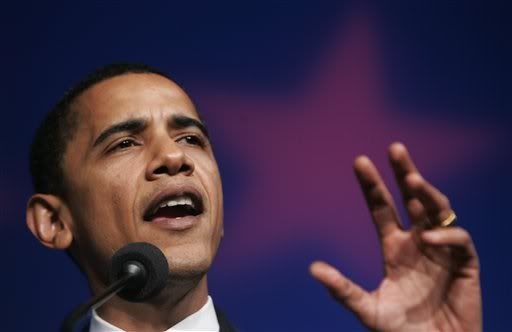
The presidency of the 44th president of the United States begins right now. Up until now, everything was only practice. And Barack Obama’s promises must yet be kept. The Guantanamo Bay prisoner-of-war camp should be closed by January 22, 2010. This is due to disagreements over the accommodation of the remaining 229 prisoners, as well as over the military tribunal vs. civil court procedures, which will require more time to reach a resolution. And the world should be freed from the scourge of impending nuclear destruction – Washington’s resolution to the United Nations Security Council will be submitted on Friday; the White House wants to have it adopted during the Obama-led council meeting in New York on September 24.
Whether Obama’s presidency will be successful will be determined by the numbers: By what percentage did the American economy grow? How high are the deficit, national debt and unemployment rate? How much does health care cost Americans? How many still fall through the cracks – whether uninsured or underinsured – into financial ruin or the grave? How many people in Iraq, Afghanistan and elsewhere in the world have been murdered each day by Islamic terrorists? And how many American soldiers have lost their lives in the fight against senseless murders?
Since Obama took office on January 20, he has given 120 speeches – all long, before small and large audiences, for radio, television and Internet. His most recent monumental speech on the fiercely competitive health care reform was given Wednesday before both chambers of Congress; traditionally, the American president only gives his State of the Union address in January to the entirety of Congress. And Obama has not remained silent since: Speeches at union meetings and demonstrations were added for the weekend. Soon the whole world – at the G20 summit in Pittsburgh and at the UN general assembly meeting in New York – will hear more from Obama.
Some wonder how the outspoken president is at governing. And some also believe that since the departure of George W. Bush from the capital, he has portrayed more of the candidate Obama than of President Obama.
He made the reform of the American health care system his most important domestic policy priority. Obama is now playing a direct role in the reform following the catastrophic summer and his dramatically declining approval ratings. There is some evidence that the House and Senate will, in fact, pass health care reform legislation this year – thanks to the Democratic majority in both houses and the handful of votes from moderate Republicans. This will not help overcome the poisonous party strife, for which both Democrats and Republicans are mutually responsible, nor is there a significant contribution towards the fight against the recession.
Granted, Obama and his cabinet have inherited from Bush an American economy in a dangerously lopsided position. The $787 billion comprehensive economic stimulus package in February was little more than a life preserver for the supertanker of the American economy. Despite some signs of hope that the worst recession since the Great Depression is getting better, the unemployment rate will be in the double digits this year. The number of foreclosures continues to rise. The deficit and national debt are astronomically high. The dollar is consistently weak.
In foreign and security policies, it is not evident that Obama’s persistent global charm offensive has been successful: Iran and North Korea have not given up their nuclear programs; Syria continues to obstruct the peace process in the Middle East and the stabilization of Iraq; in Cuba, despite the easing of American sanctions, no spark of democratization is in sight; and in America, war-weariness grows, given the resurgent Taliban and the dubious presidential election in Afghanistan.
Whether Obama, despite the growing resistance within his own party, will send the additional soldiers to Afghanistan as requested by the commanders in the Hindu Kush, is uncertain. Obama will talk with Iran and North Korea. Certainly, sometimes words can change the world. Firm action could not hurt either.

Leave a Reply
You must be logged in to post a comment.